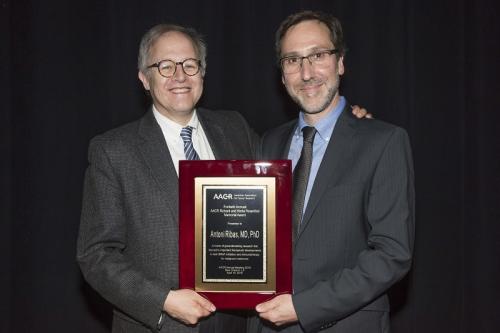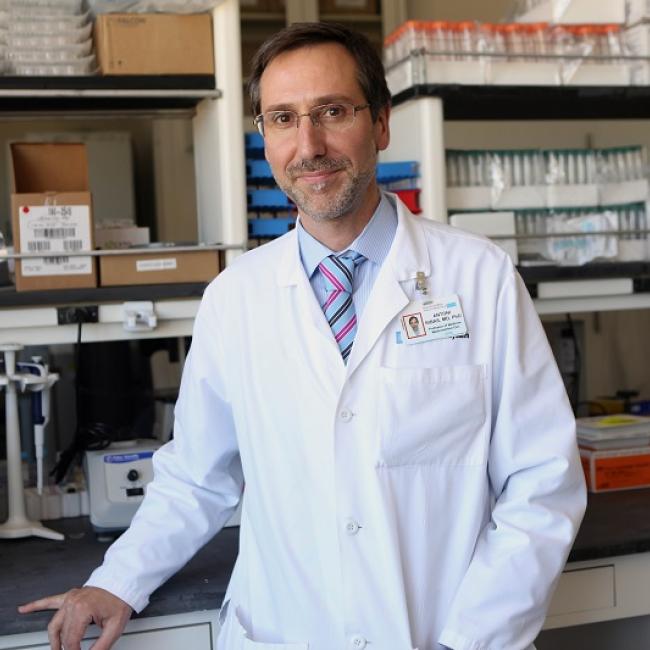
Dr. Antoni Ribas receives American Association for Cancer Research award
Dr. Antoni Ribas has received the Richard and Hinda Rosenthal Memorial Award from the American Association for Cancer Research (AACR). The award honors investigators relatively early in their careers whose research has made, or promises to soon make, a notable contribution to improved clinical care in the field of cancer.
Ribas, a member of the UCLA Broad Stem Cell Research Center and the Jonsson Comprehensive Cancer Center, is a physician-scientist who conducts clinical and laboratory research focused on malignant melanoma, for which few effective therapies exist. He hopes to improve understanding of how the immune system can be effectively used to fight cancer in order to develop more effective and less toxic therapies for melanoma patients. His pioneering work in in creating a cancer-fighting immune system led to his interest in stem cell research. He is working to genetically engineer stem cells so they can re-populate the immune system with killer immune cells that attack cancer.
Ribas discussed his recent research, which is already producing benefits for cancer patients, in the lecture "How Cancer Resists PD-1 Blockade," which he presented on April 18 at the AACR annual meeting. In a study published in the Journal of the American Medical Association, he reported on a long-term follow-up to a phase 1 clinical trial that led to the approval of the drug pembrolizumab (marketed as Keytruda®). The drug blocks a protein called PD-1, which prevents immune cells, called T cells, from recognizing and attacking cancer cells. With PD-1 blocked, T cells can more effectively do their job; the study reports that administration of pembrolizumab resulted in tumor regressions in 33 percent of patients with metastasized melanoma, with low toxicity.
A professor of hematology and oncology in the UCLA David Geffen School of Medicine, Ribas is also director of the recently established Parker Institute for Cancer Immunotherapy Center at UCLA, which brings together the nation’s leading cancer centers to develop new therapies for metastatic disease.
